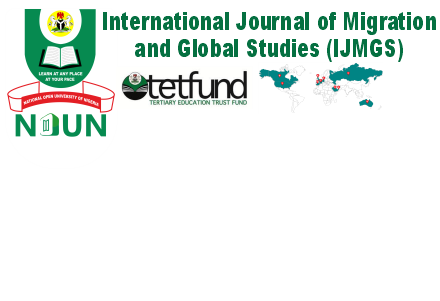This study departs from the popular intellectual narrative of neoclassical theorists that look at positivity and negativity of migration as separate discourses and has chosen peace as a field of interest to posit on paradox of migration. The assumption of this study is that migration, annexation, occupation, conquest, ethnicity and political-economy are inseparable components that generate conflicts that result in immigration paradox. This is a descriptive study anchored on qualitative analysis of observable behaviours of migrants and hosts in Nigerian socio-cultural context. Apart from observation and interviews, secondary data were sourced from books, journals, newspapers and internet. Findings revealed that migration has been both functional and dysfunctional to Nigerian plural society as a result of multi-cultural, multi-linguistic and multiple group identities. The complexity of internal migration has led to inter-mingling of divergent groups who live with suspicion in their relationships especially in the urban centres. Rural-urban migration continues to be on the increase as a result of failure of rural development programmes. The relation between internal migration and peace in Nigeria is reciprocal but strongly asymmetrical. Centuries of interrelations among different ethnic groups have not produced a nation with one identity. Cultural associations, ethnic societies and tribal groups are used to pursue division among Nigerians either at home or outside of the homeland. However, Nigerians continue to embark on internal migration in spite of the orchestrated differences promoted by the elite.
